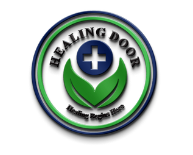How to Overcome Crystal Meth(Ice) Addiction in Pakistan
Introduction
Methamphetamine, often referred to as “ice,” is a highly addictive and dangerous drug.
It affects millions of lives worldwide. The issue of crystal meth addiction transcends borders.
Pakistan is not immune to this problem, as drug addiction is a global concern.
In this article, we will discuss the dangers of ice addiction and how to overcome it.
Understanding Ice (Crystal Meth) and Meth
Methamphetamine is a powerful stimulant known for its euphoric effects. It comes in various forms. One of the most potent and dangerous is crystal meth, commonly known as “ice.”
In Pakistan, as in many parts of the world, methamphetamine is a concerning issue.
Ice addiction poses a significant threat due to its purity and potency. Crystal meth, often resembling clear crystals, offers a long-lasting high, sometimes lasting up to 24 hours.
However, the effects of ice are unpredictable, as the drug is often mixed with other substances, leading to varying outcomes.

Dangers and Effects of Ice Addiction
Ice addiction is a grave concern due to its impact on the user’s physical and mental health.
The immediate euphoria from ice use is followed by severe side effects when the drug’s effects wear off.
It includes hallucinations, dizziness, blurred vision, irritability, and exhaustion. Overdose symptoms may include extreme agitation, chest pain, seizures, and unconsciousness, which require immediate medical attention.
The highly addictive nature of ice can be attributed to its impact on the release of dopamine and serotonin in the brain. These neurotransmitters regulate pleasure and reasoning, and ice use can lead to a significant increase in their levels. This results in a euphoric sensation, followed by a craving for more of the drug.
Ice Addiction and Its Impact on Mental Health
Ice addiction not only takes a toll on physical health but also severely affects mental well-being.
People who use ice may experience short-term effects like substance-induced psychosis, panic attacks, mood swings, and insomnia. Prolonged use can lead to dependence, paranoia, depression, and psychosis.
Preventing Ice Addiction in Pakistan
It is essential to take preventive measures to address the issue of ice addiction in Pakistan.
Given the potentially severe consequences of ice use, education and awareness campaigns are crucial. These initiatives should focus on the risks and dangers associated with methamphetamine, especially crystal meth.
Furthermore, strengthening mental health support systems, promoting a healthy lifestyle, and creating awareness about the importance of seeking professional help are vital steps in preventing and combating ice addiction in Pakistan.
Seeking Help for Ice Addiction
For individuals in Pakistan struggling with ice addiction, seeking help is a critical step towards recovery.
Withdrawal from ice can be challenging and comes with symptoms like extreme cravings, irritability, anxiety, and insomnia.
Professional medical assessment and screenings are necessary to address the physical and psychological effects of ice addiction.
Healing Door Rehabilitation Centre
Healing Door Rehabilitation Center offers a range of treatment options including detoxification, behavioral therapy, and support groups. It can be immensely helpful in the recovery process.
Healing Door Rehabilitation Center provides tailored treatment programs for ice addiction.
It offers a safe and supportive environment for individuals on their journey to recovery.
Conclusion
Ice addiction is a significant concern that transcends borders, affecting people in Pakistan as well as in other parts of the world.
Understanding the dangers of ice, its addictive nature, and its devastating effects on individuals and communities is essential in addressing this issue.
By providing education, support, and access to professional treatment Healing Door Rehabilitation Center can take significant steps toward combating ice addiction and helping individuals live substance-free lives.
If you or someone you know is struggling with ice addiction, do not hesitate to reach out for support and guidance to achieve a healthier, addiction-free life.

